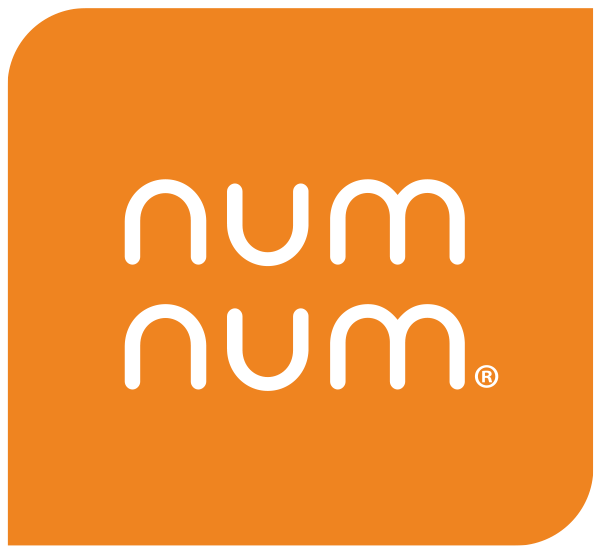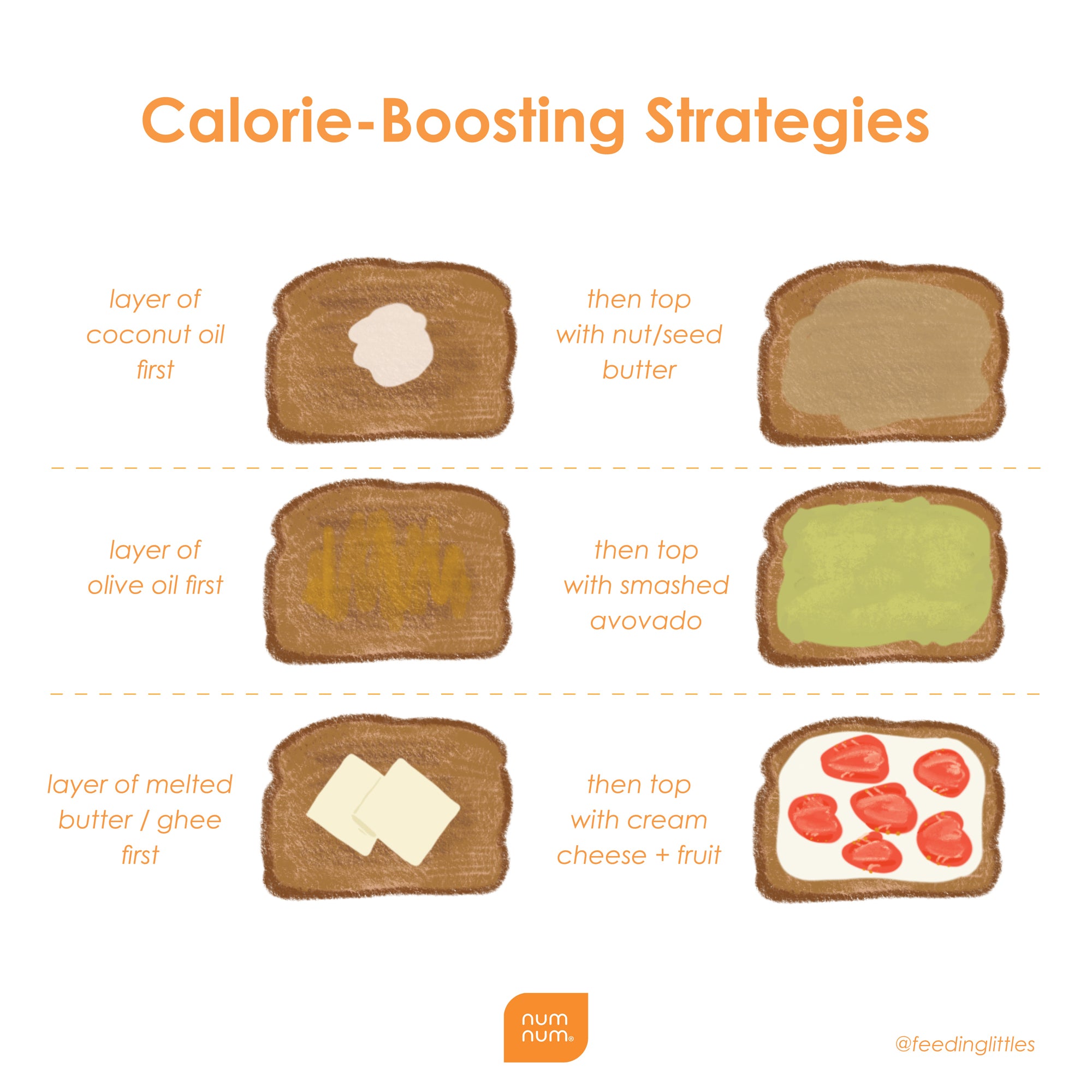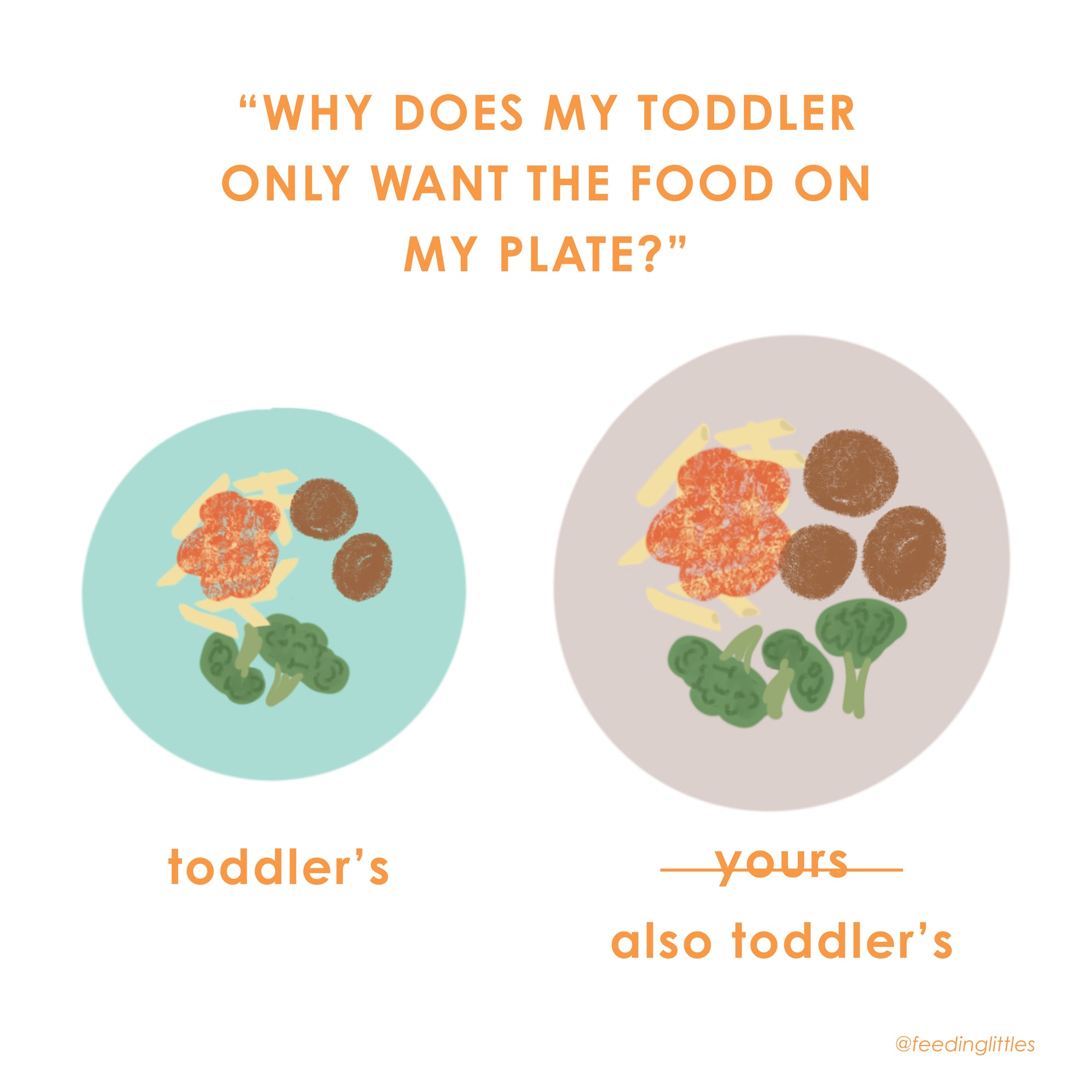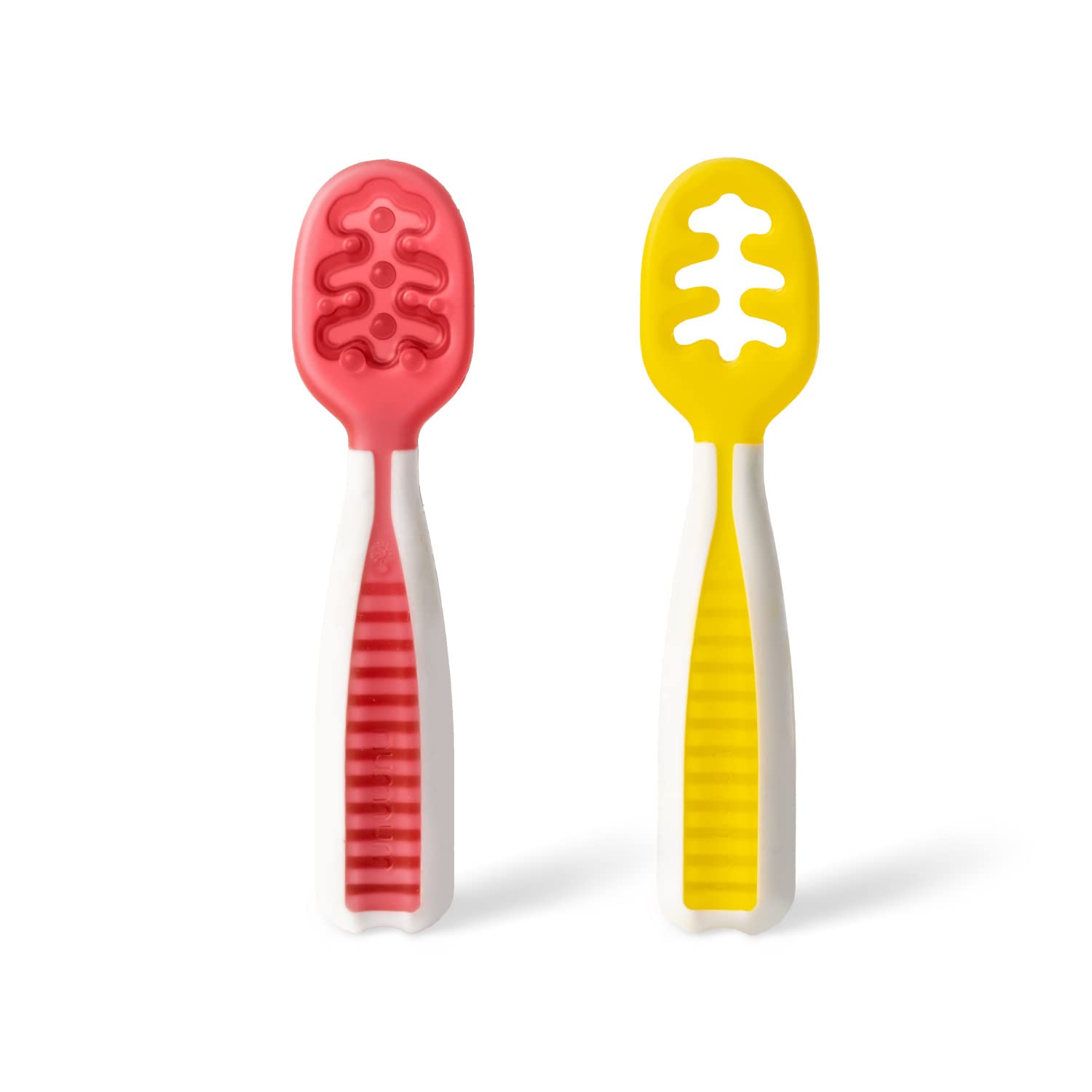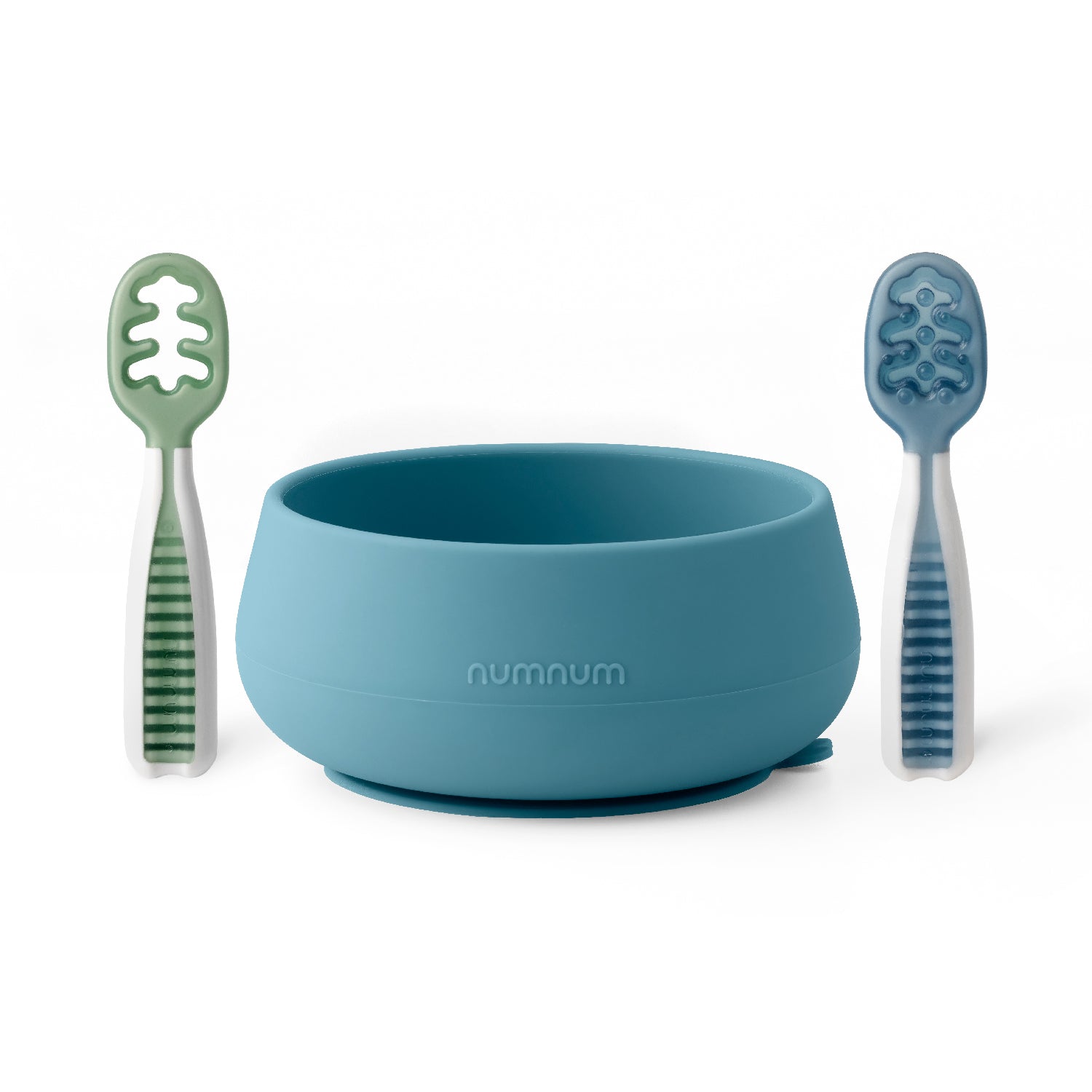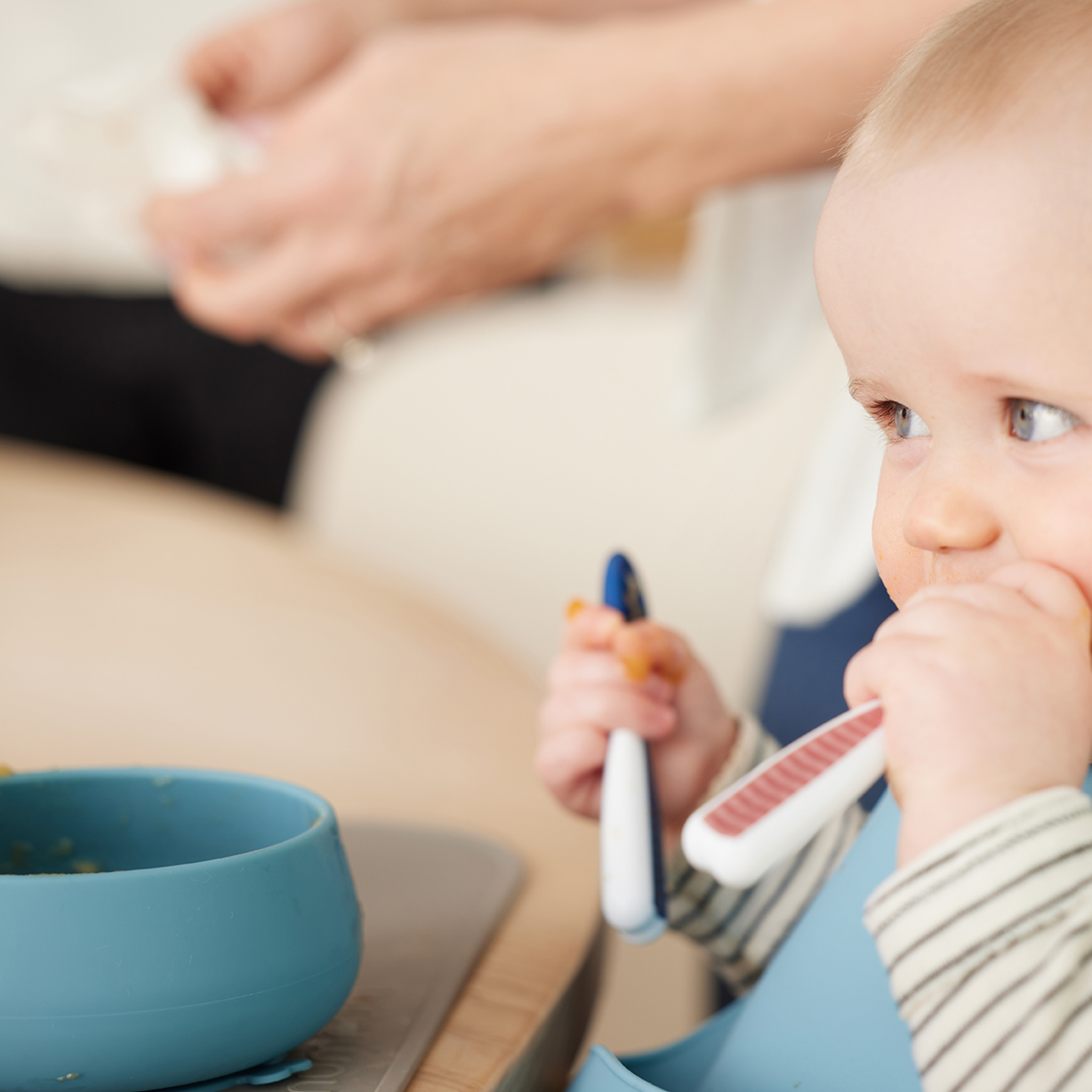Have you heard the phrase “food before one is just for fun?” It’s a phrase that has gotten popular in the Baby-led Weaning {infant self-feeding} world.
The intent and original meaning of it is great - don’t stress about the quantity of food baby is feeding themselves, especially in the first few months as babies are figuring it out. Unfortunately, the term has been utilized to mean that introducing solid food isn’t important until after one or that food has no place until 12 months 🤔
We just want to clear up why introducing solids is important for babies, even if they’re not eating bigger quantities yet. Will you tag a friend with an infant at home?
You might have heard that breast milk or formula are your baby’s primary source of nutrition until closer to one. This is true! However, introducing solids around 6 months {when baby is showing readiness skills like sitting with minimal assistance and bringing food to their mouth} is important for the following reasons:
-
Development.
Learning to self-feed is a skill that takes time and practice. It can take babies a few months to figure it out, and practice is what helps get them there. -
Allergies.
Pediatric allergists now recommend that babies get exposed to the top 8 allergens {peanuts, tree nuts, shellfish, finned fish, dairy, wheat, eggs, soy} in baby-safe forms early and often, right when they start solids. Delaying introduction of these allergens can actually increase their allergy risk. Make sure to talk to your provider if you’re worried about your child’s allergy risk. -
Sensory processing.
Babies need to touch and explore foods with their hands to be OK with putting it in their mouths. Sensory exploration teaches their bodies that these textures are ok to touch and eat. -
Nutrition.
Babies’ iron stores from birth start to deplete around 6 months, so high iron foods are important to introduce at this time.
Is food also for fun? Absolutely! It’s meant to be a gradual, low-stress process where we keep exposing them to the flavors of the family table, and over time we hope that their intake increases.
